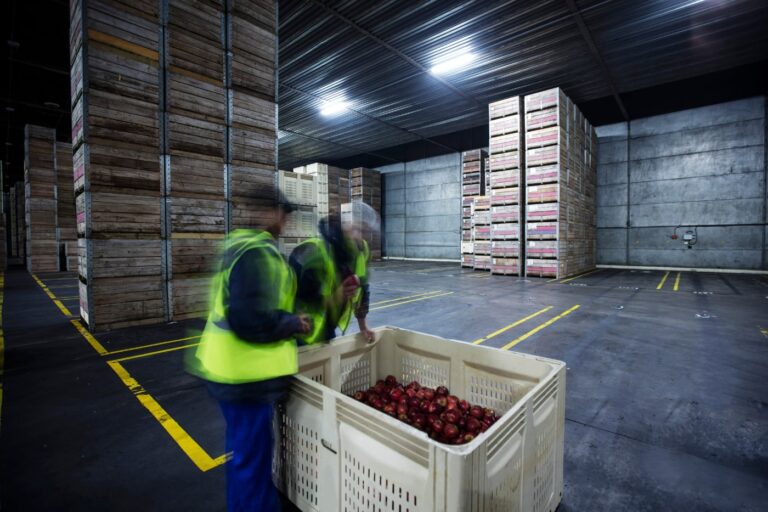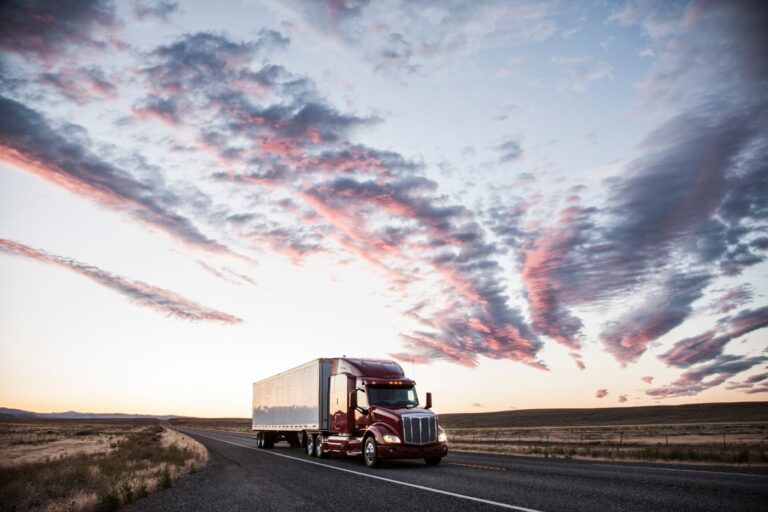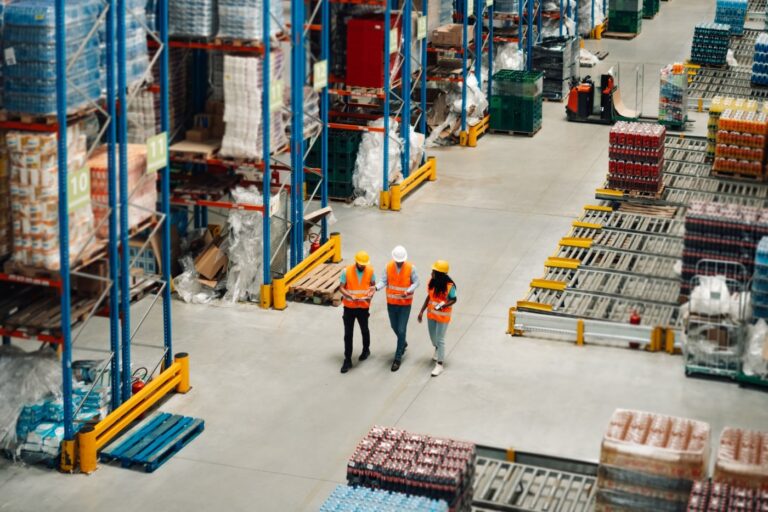From the early days of trade routes to the modern era of globalization, logistics has played a pivotal role in shaping the way businesses operate. However, the landscape of logistics is undergoing a profound transformation that is redefining the very essence of supply chain management.
At the heart of this transformation is technology. As we stand on the precipice of a new era, we find ourselves in an age where technology is not merely a tool but a catalyst for change. The logistics industry, in particular, is witnessing a revolution fueled by innovations such as the Internet of Things (IoT), Big Data analytics, artificial intelligence (AI), and automation. These technological advancements are disrupting traditional supply chain models and offering new possibilities for efficiency, sustainability, and customer satisfaction.
Current Technological Advancements
The integration of cutting-edge technologies is ushering in a new era of efficiency, visibility, and precision in supply chain management. Let’s explore what technology is currently reshaping the logistics industry.
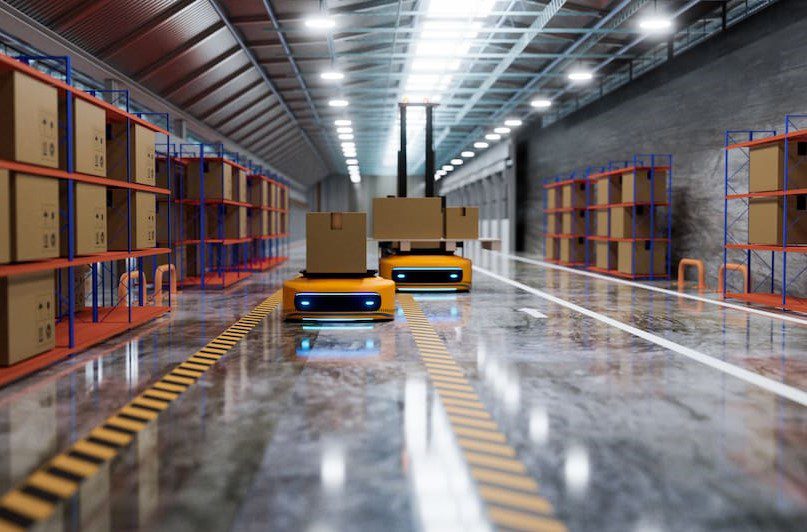
Internet of Things (IoT) in Logistics
Real-time Tracking and Monitoring: The Internet of Things (IoT) has revolutionized logistics by enabling real-time tracking and monitoring of assets throughout the supply chain. With IoT sensors embedded in goods, containers, and vehicles, logistics providers can pinpoint the exact location and condition of shipments at any given moment. This level of visibility not only enhances security but also allows for proactive decision-making and timely interventions in the event of delays or disruptions.
Predictive Maintenance: IoT-powered predictive maintenance is another game-changer in logistics. By continuously monitoring the condition of vehicles and equipment, logistics companies can predict when maintenance is required, preventing costly breakdowns and optimizing resource allocation. This predictive approach minimizes downtime and ensures that goods are transported smoothly and without interruptions.
Big Data and Analytics
Data-Driven Decision-Making: Big Data and advanced analytics have become indispensable tools in logistics. By collecting and analyzing vast amounts of data from various sources, logistics providers can make informed decisions to optimize routes, allocate resources efficiently, and enhance overall operational performance. Data-driven decision-making not only reduces costs but also improves service quality.
Demand Forecasting: Accurate demand forecasting is critical in logistics to ensure that the right quantity of goods is available when and where it’s needed. Big Data analytics, combined with historical data and market trends, empower logistics professionals to anticipate fluctuations in demand and adjust their strategies accordingly. This capability minimizes excess inventory and prevents stockouts, resulting in cost savings and improved customer satisfaction.
Artificial Intelligence (AI) in Logistics
Route Optimization: AI-driven route optimization algorithms consider multiple factors such as traffic conditions, weather, and delivery windows to determine the most efficient delivery routes. By optimizing routes in real-time, AI reduces transportation costs, minimizes fuel consumption, and shortens delivery times, all while maintaining service quality.
Inventory Management: AI plays a pivotal role in optimizing inventory management. By analyzing demand patterns and historical data, AI algorithms help logistics companies strike the right balance between inventory levels and service levels. This not only reduces holding costs but also ensures that goods are readily available to meet customer demands.
Robotics and Automation
Warehouse Automation: Warehouse automation solutions, including autonomous robots and automated conveyor systems, have revolutionized the way goods are handled and stored in logistics facilities. These technologies improve warehouse efficiency by accelerating order fulfillment, reducing errors, and minimizing labor costs.
Autonomous Vehicles: Autonomous vehicles are on the horizon of logistics transformation. Self-driving trucks and delivery drones have the potential to increase delivery speed, lower transportation costs, and reduce the environmental impact of logistics operations. While still in development, the adoption of autonomous vehicles holds great promise for the industry’s future.
These current technological advancements are driving significant changes in the logistics landscape, enhancing efficiency, and reshaping the way goods are transported and managed. Embracing these technologies is increasingly becoming a necessity for logistics companies aiming to remain competitive in a rapidly evolving industry.
Challenges and Barriers
In the midst of the transformative wave of technological advancements in logistics, it’s crucial to acknowledge the challenges and barriers that accompany this progress. While the benefits of these innovations are evident, there are several hurdles that logistics companies must address.
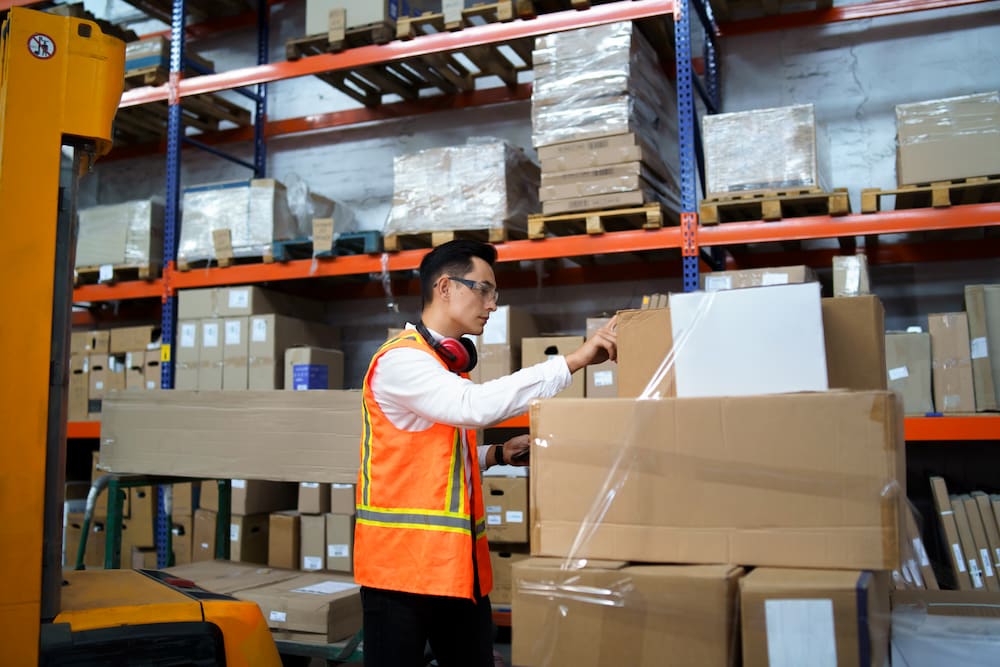
Data Security Concerns
The integration of technology into logistics operations generates vast amounts of data, ranging from shipment details to sensitive customer information. While this data is invaluable for optimizing operations, it also presents a significant concern – data security. Ensuring the confidentiality, integrity, and availability of this data is paramount. Logistics companies must invest in robust cybersecurity measures to protect against data breaches, cyberattacks, and unauthorized access. Failure to do so not only jeopardizes sensitive information but also erodes trust and may result in legal and financial repercussions.
Workforce Adaptation
The rapid pace of technological change in logistics necessitates a skilled and adaptable workforce. However, workforce adaptation is a multifaceted challenge. Existing employees may require training and upskilling to operate new technologies effectively. Additionally, as automation and AI become more prevalent, there may be concerns about job displacement. Addressing these issues involves not only providing education and training but also fostering a culture of adaptability and innovation within the organization. It is essential to ensure that the workforce remains aligned with the evolving technological landscape.
Integration Complexity
The seamless integration of various technology solutions is pivotal for realizing their full potential. However, achieving this integration is often easier said than done. Logistics companies must contend with the complexity of integrating disparate systems, ensuring they communicate effectively and share data accurately. Compatibility issues, legacy systems, and differing data formats can pose significant integration challenges. A well-thought-out strategy for integration, along with the use of standardized protocols and APIs, is essential to navigating this complexity successfully.
While technology offers unprecedented opportunities for enhancing efficiency and competitiveness in logistics, it is essential to address these challenges effectively. Data security concerns, workforce adaptation, and integration complexities must be carefully managed to ensure that the benefits of technological advancements are realized while minimizing associated risks.
Future Trends in Logistics Technology
The future is shaped by innovation and adaptability. In fact, the analyst group Gartner predicts that 75% of large warehouses will be using smart robots by 2026 (Gartner). As we look ahead, it is essential to identify and understand the emerging trends that will redefine how goods are transported, managed, and delivered. Let’s explore several key future trends in logistics technology, each with the potential to disrupt and enhance the industry in distinct ways.

Blockchain in Supply Chain
Blockchain technology, renowned for its transparency, security, and immutability, is poised to play a pivotal role in the future of logistics. Blockchain in supply chain management ensures a tamper-proof and auditable record of transactions, enabling end-to-end visibility and traceability of goods. Smart contracts, powered by blockchain, can automate and verify contractual agreements, leading to more efficient and trustworthy relationships among stakeholders. With the potential to reduce fraud, streamline processes, and enhance trust throughout the supply chain, blockchain holds significant promise for logistics professionals seeking to optimize their operations.
Autonomous Vehicles and Drones
The advent of autonomous vehicles and drones represents a monumental shift in logistics. Self-driving trucks and delivery drones promise to enhance speed, reduce costs, and improve safety in the transportation of goods. Autonomous vehicles, equipped with advanced sensors and AI, can optimize routes, minimize fuel consumption, and reduce human error. Meanwhile, drones enable swift and precise last-mile deliveries, particularly in urban areas. These technologies are poised to revolutionize logistics operations and redefine the concept of “just-in-time” delivery.
Digital Twins
Digital twins are digital representations of physical assets, processes, or systems. In logistics, they can create virtual replicas of warehouses, vehicles, and even entire supply chains. These digital twins allow logistics professionals to monitor, simulate, and optimize operations in real time. By providing a holistic view of the supply chain, digital twins enable predictive maintenance, demand forecasting, and efficient resource allocation. They hold the potential to revolutionize logistics by providing a digital mirror of the physical world, enabling proactive decision-making and optimization.
By staying ahead of these trends, logistics professionals can position themselves to thrive in an industry that is continuously evolving toward greater efficiency, transparency, and sustainability.
Embracing the Future of Logistics
From real-time tracking with IoT to data-driven decisions through analytics, and AI-powered route optimization to warehouse automation, logistics is undergoing a seismic shift. At Hanzo Logistics, we are committed to growth and continuous improvement, which is why we integrate cutting-edge technologies and best practices to provide efficient, reliable, and sustainable fulfillment solutions. We understand that it is our responsibility to harness the full potential of technology while addressing its challenges with diligence and innovation.
Embracing technology in logistics is imperative. It is the key to remaining competitive, efficient, and responsive in a world where supply chain excellence is more critical than ever. Those who recognize and adapt to these changes will not only thrive but will also lead the way in shaping the future of logistics. The future belongs to businesses that embrace technology as an ally, a tool, and a driving force for progress in the dynamic world of logistics.

